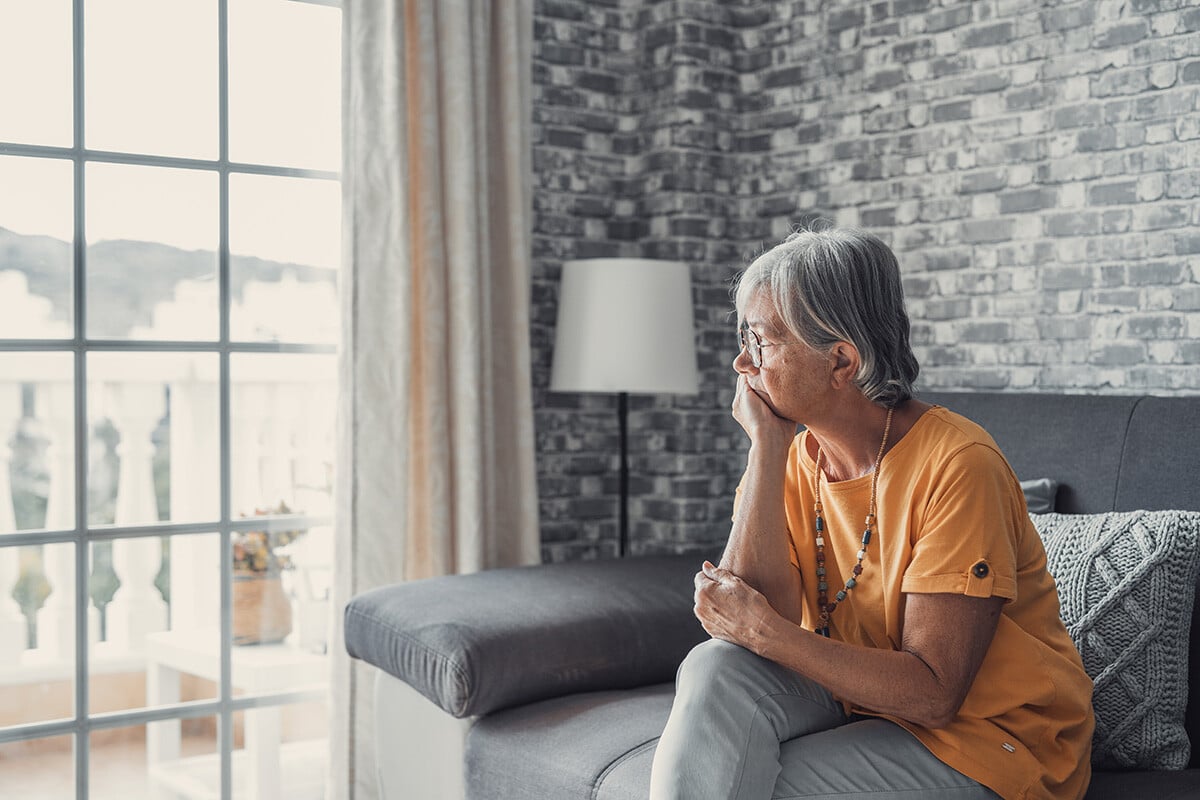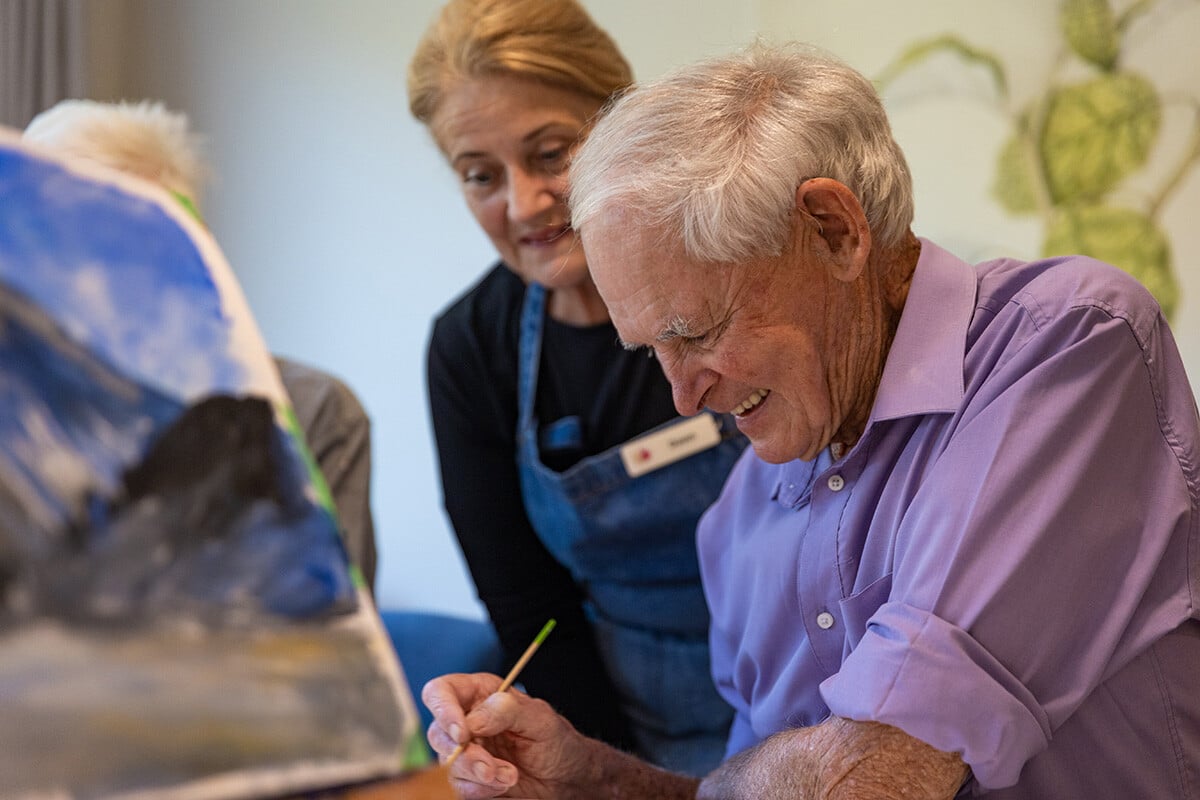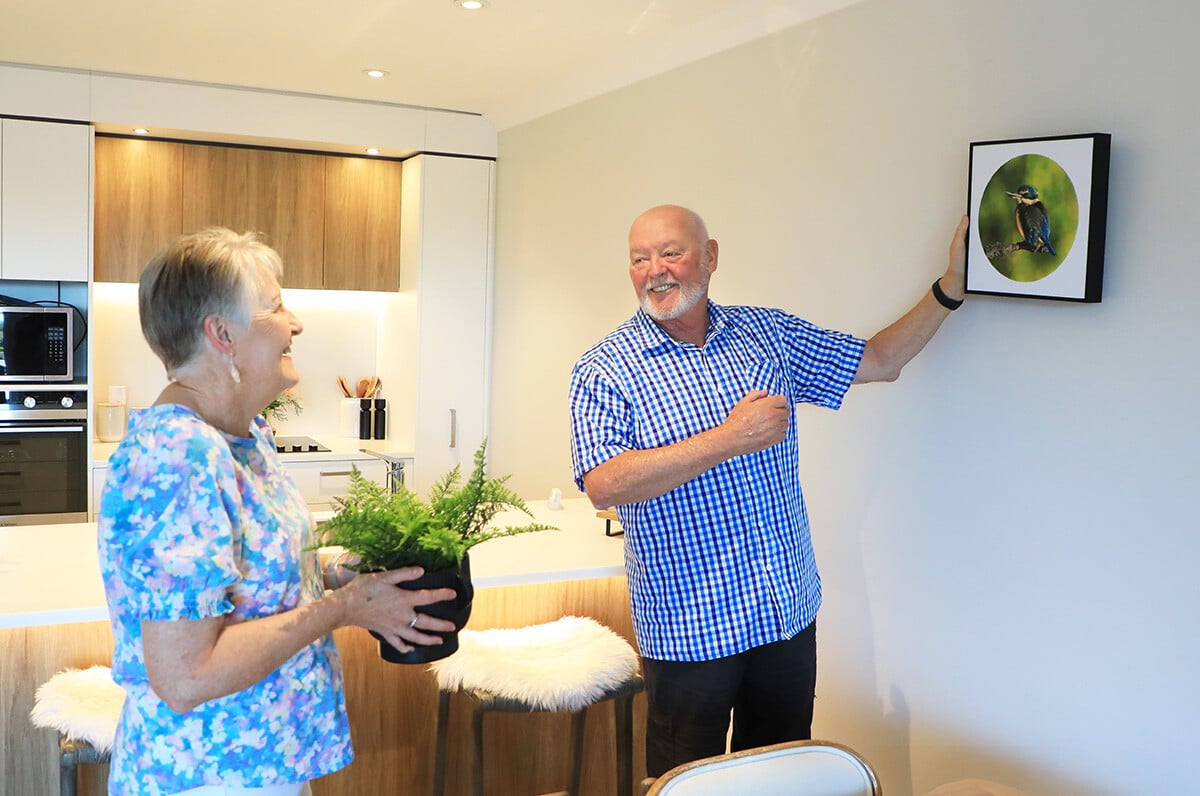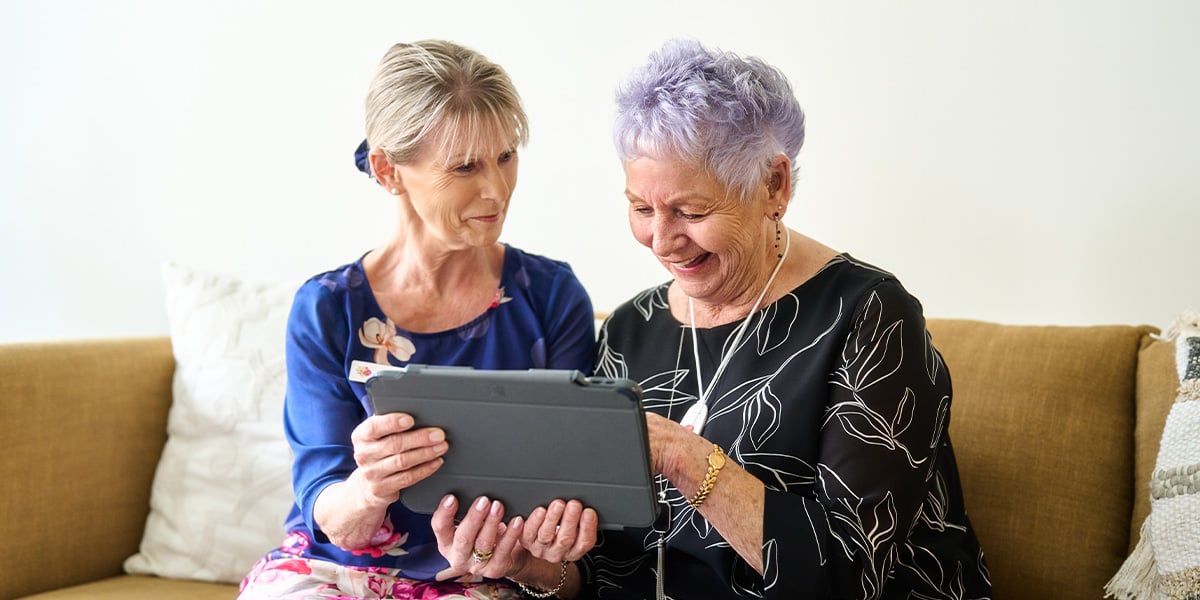How to stop post-retirement depression
How to stop post-retirement depression
.jpg?width=1200&height=796&name=BNE%20-%20Residents%20-%20Sept24%20--02%20(1).jpg)
Retirement is often seen as a time to unwind, travel, and enjoy greater freedom. While many Australians look forward to life after work, for some, it can bring unexpected emotional challenges. Instead of feeling excited, you might experience a sense of loss, sadness, or uncertainty about what comes next. If that sounds familiar, you’re not alone. Many people feel a dip in mood or even signs of depression after retiring.
The good news is that these feelings are often temporary and part of the natural adjustment to a new way of living. If you're looking for ways to manage the emotional side of retirement, read on for practical tips to support your mental well-being and help you make the most of this next chapter.
Common causes of depression after retirement
A common cause of depression after retirement is the loss of daily routines and social interactions that come with the workplace. A person’s work can be an important part of their identity, and some people struggle with their self-worth and sense of purpose after leaving the workforce. Health concerns can also contribute to depression.
Lack of routine and purpose
The loss of routine and purpose can be a challenge, particularly if your career has been a significant part of your identity. After many years in structured work environments, you may find it difficult to transition to the unstructured free time of retirement, which can lead to feelings of emptiness. If work has kept you busy for a long time, you may even be unsure of what you truly enjoy outside of your professional life.

Social isolation
Workplaces often provide a built-in social network, and if you no longer see your colleagues, you may feel isolated or disconnected. Maintaining friendships after retirement can be difficult when you're no longer in the same office or workplace. You may also feel disconnected from other social circles if your friends are still working. If you have mobility issues or don’t drive, this sense of isolation can feel even more pronounced, making it harder to get out and socialise, or to engage in activities that once brought you joy.
A loss of identity and self-worth
For many Australians, work is a core part of their personal identity, giving them a sense of self-worth. The transition into retirement can therefore lead to feelings of emptiness or even a loss of self-esteem, particularly if you struggle to see yourself outside of your professional role or miss the recognition that came with your career.
Health concerns
As we age, health challenges can become more prominent, significantly impacting our overall well-being. Conditions such as arthritis, hearing or vision loss, and mobility issues can make it harder to enjoy the activities that were once part of your lifestyle. This can lead to frustration, a sense of loss, and sometimes anxiety or depression as you adjust to these changes.
Recognising symptoms of post-retirement depression
Post-retirement depression can show up in different ways, including persistent feelings of sadness, a loss of interest in activities you once enjoyed, and a lack of motivation to get things done.
Common symptoms may include:
- Fatigue
- Difficulty sleeping
- Feelings of guilt or worthlessness
- Social withdrawal
You may also experience:
- changes in appetite or weight,
- irritability,
- trouble concentrating, and
- physical symptoms like aches and pains.
Everyone has bad days from time to time but if you feel this way most of the time since you retired, you could be experiencing post-retirement depression.
Why am I sad about retirement?
Even if you were looking forward to retirement, it’s completely normal to feel sadness or grief. If your work was a big part of your identity and gave you a sense of purpose, it’s natural to experience a sense of loss when you retire. Give yourself time to process this major life change and adapt to your new lifestyle. It’s normal to need some time to adjust. By accepting these emotions, you can start to find new ways to embrace retirement and make it a fulfilling chapter of your life.
Is it normal to feel lost when you retire?
Yes, feeling lost after retirement is a common experience. It’s a natural emotional response to such a significant change in your life. By accepting and validating these feelings, rather than brushing them off, you can take practical steps to feel better. Finding new passions, setting new goals, and creating a fulfilling routine can help ease the sense of loss and guide you towards building a satisfying, meaningful retirement.
How long does depression last after retirement?
This can vary from person to person. Some people might experience prolonged struggles with depression, particularly if they feel isolated or are dealing with serious health issues. Others may find that their feelings of depression are short-lived and fade as they settle into new routines and develop new friendships. Either way, be patient with yourself. Going through a period of post-retirement depression doesn’t mean it will last forever, and you will eventually adjust to your new way of life.

Strategies that can help with post-retirement depression
One of the best ways to enjoy a fulfilling retirement is to plan for it before it arrives. While financial planning is essential, emotional and social preparation is also very important. Things to consider:
- How you’ll spend your time
- What activities will bring you joy and fulfilment
- How you’ll stay connected with others
So if you’re wondering, ‘how to emotionally cope with retirement?’, here are several strategies that can help ease the transition into retirement and prevent or alleviate depression:
Establish new routines
Since the loss of routine is a major contributor to post-retirement depression, a good first step is to develop a new routine that you enjoy and that gives you something to look forward to each day.
Think about things you’ve always wanted to do but didn’t have time for while working, and incorporate them into your daily schedule. It’s even better if some of these activities get you out of the house for a change of scenery. This could be as ambitious as taking up university studies or as simple as enjoying a morning coffee at your local café. The key is to choose activities you enjoy and can commit to doing regularly.

Pursue hobbies and interests
Retirement gives you the chance to invest time in hobbies and interests that may have taken a back seat during your working life. Whether it’s improving your golf game, learning a new skill, or joining a club, taking up new experiences can leave you feeling revitalised. Creative activities like painting, writing, music, crafting, or learning a new language help keep your mind active and create a sense of accomplishment, which can boost your confidence and sense of self-worth.
Volunteer and give back
Volunteering is a great way to give back to your community while also providing you with a sense of purpose. By dedicating time to local organisations or community causes, you can stay engaged, make a positive impact, and enjoy the emotional rewards of helping others. Volunteering also offers social benefits, as you’ll meet new people and potentially make new friends.
Stay physically active
You’re never too old to get moving, you just need to do it the right way. Staying physically active is vital for both mental and physical health, no matter your age. Regular exercise lifts your mood, reduces stress, and increases your energy levels and strength. Plus, joining fitness groups, sports teams, or community-based exercise programs gives you opportunities to socialise and meet new people.
Maintain and build social connections
Social isolation is a major factor in post-retirement depression, and many retirees miss the camaraderie and social interactions that came with work. Regular social activities can help maintain meaningful connections and reduce feelings of loneliness. Not everyone is naturally outgoing, but everyone benefits from feeling like they belong. It could be as simple as meeting a friend for coffee or joining a group or club that aligns with your interests to connect with like-minded people.
Seek professional support
If adjusting to retirement proves particularly challenging, it’s a good idea to reach out to your doctor or a therapist experienced in helping people navigate major life changes. You may also be able to find support groups in your area where you can meet others who are going through similar experiences. Some resources are linked at the end of this article.

Reframing retirement
Rather than viewing retirement as the end of something, try seeing it as the beginning of a new chapter – an opportunity to explore fresh interests, take on new adventures, and set personal goals that genuinely excite you. Shifting your perspective in this way can make retirement feel like a fresh start, full of possibilities for learning, growth, and fulfilment.
Post-retirement depression can be a tough experience, but it's far from uncommon – and it can be managed. With a bit of planning and a willingness to embrace change, you can ease the transition and move confidently into this rewarding stage of life. Taking up hobbies, staying physically and socially active, and keeping connected with others are all powerful ways to protect your mental health and create a meaningful life after full-time work.
Many Ryman residents have found that retirement offers the freedom to explore new adventures, get creative, and truly enjoy life on their own terms.
At Ryman, our friendly and experienced team is here to support you every step of the way. We offer independent living, assisted living, and a full range of aged-care options to help you transition smoothly into retirement living – with less stress and more peace of mind.
Contact Ryman Healthcare to find out how we can support you to build a retirement lifestyle where you can truly thrive.
Additional resources and support
Speaking to your doctor about your mental health is always a good first step as they can refer you to mental health support services that best suit your needs.
There are also several organisations that you can contact for help, including:
My Aged Care — This is the central point for accessing Australian Government-funded aged care services provided by the Australian government. Call 1800 200 422.
Medicare Mental Health Call 1800 595 212 for advice and to get connected to local mental health support and services.
Beyond Blue – for mental health information and support, call 1300 22 4636 or chat online.
Open Arms – mental health support and counselling for veterans, ADF personnel and family members.
National Seniors Australia – a not-for-profit organisation advocating for older Australians.
by Christine McCurdy | Jun 5, 2025
Subscribe to our blog newsletter
You May Also Like
These Related Stories

Your guide to the strengthened aged care quality standards

Ryman lives its values, study shows

